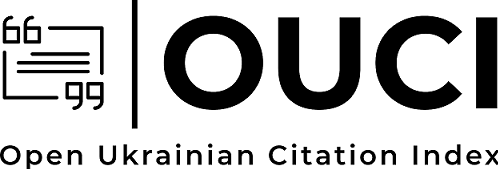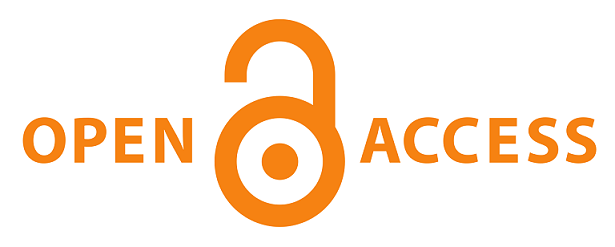Контрольований ренесанс: взяття під контроль більшовицьким режимом українського літературно-мистецького середовища у 1920-х роках
DOI:
https://doi.org/10.28925/2524-0757.2025.16Ключові слова:
контрольований ренесанс, літературно-мистецьке середовище, інтелігенція, більшовицький режим, 1920-ті рокиАнотація
У статті висвітлено процеси, що відбувались у літературно-мистецькій сфері радянської України. Використано як основний підхід оцінку цього періоду з урахуванням суспільно-політичних поді 1920-х рр. Визначення цього літературно-мистецького покоління як Розстріляного відродження опирається на трагічні події 1930 рр., коли радянський режим активізував більшовицьку модернізацію за сталінською моделлю. У період раннього тоталітаризму основними формами взяття під контроль літературно-мистецького середовища були: збирання компрометуючої інформації, організаційний вплив на створення чи припинення діяльності літературних організацій, матеріальне заохочення лояльних режиму літераторів і митців, ідеологічна інструменталізація творчості, публічне засвідчення підтримки більшовицької влади та інші.
Завантаження
Посилання
Bon, O. (2024). Pid nahliadom DPU: Hryhorii Kosynka u 1920-kh rokakh [Under GPU Surveiliance: Hryhorii Kosynka in the 1920s]. Eminak, 3(47), 223–224 [in Ukrainian]. https://doi.org/10.33782/eminak2024.3(47).737
Bon, O. (2023). Suspilno-politychni umovy diialnosti literaturno-mystetskoi intelihentsii u 1920-kh rr. [Social and Political Conditions for Intellectual’s Literary-Art Activities in 1920s]. Kyiv Historical Studies, 1(16), 84–91 [in Ukrainian]. https://doi.org/10.28925/2524-0757.2023.19
Hundorova, T. (2000). Intelektualna dystopiia Yuriia Lutskoho. Lutskyi Yu. Literary Politics in the Soviet Ukraine. 1917–1934. (pp. 9–16). Kyiv: Helikon [in Ukrainian].
Komarenko, T. O., & Shypovych, M. A. (1999). Vlada i literaturno-mystetska intelihentsiia radianskoi Ukrainy: 20-ti roky XX st. Kyiv: Instytut istorii Ukrainy [in Ukrainian].
Koshelivets, I. (1980). Oleksandr Dovzhenko. Sproba tvorchoi biohrafii. Niu-Iork: Vydavnytstvo “Suchasnist”, Kyiv [in Ukrainian].
Lutskyi, Yu. (2000). Literaturna polityka v radianskii Ukraini 1917–1934. Kyiv: Helikon [in Ukrainian].
Melnykiv, R. (2013). Literaturni 1920-ti. Postati (Narysy, obrazky, etiudy). Kharkiv: Maidan [in Ukrainian].
Shapoval, Yu. (2017). Oleksandr Shumskyi. Zhyttia, dolia, nevidomi dokumenty: Doslidzhennia, arkhivni materialy. Kyiv-Lviv: [in Ukrainian].
Shapoval, Yu. (2008). Zhyttia ta smert Mykoly Khvylovoho u svitli rozsekrechenykh dokumentiv HPU. Z arkhiviv VUChK-HPU-NKVD-KHB, 30, 311–348 [in Ukrainian].
Sharova, T. M. (2020). Avtor i tekst u systemi sotsrealizmu: pryroda estetychnoho konformizmu ta poetyka kompromisu (na materiali tvorchosti K. Hordiienka). (Candidate’s thesis). Kyiv [in Ukrainian].
Shkandriy, M. (2015). Modernisty, marksysty i natsiia. Ukrainska literaturna dyskusiia 1920-h rokiv. Kyiv: Nika-Tsentr [in Ukrainian].
Опубліковано
Як цитувати
Номер
Розділ
Ліцензія
Авторське право (c) 2025 Олександр Бонь

Ця робота ліцензується відповідно до Creative Commons Attribution-NonCommercial-ShareAlike 4.0 International License.
Автори, які публікуються у цьому журналі, залишають за собою право на авторство своєї роботи та передають журналу право першої публікації цієї роботи на умовах публічної ліцензії Creative Commons: Attribution-NonCommercial-ShareAlike 4.0 International (CC BY-NC-SA 4.0), котра дозволяє іншим особам вільно розповсюджувати опубліковану роботу з обов'язковим посиланням на авторів оригінальної роботи та першу публікацію роботи у цьому журналі.














